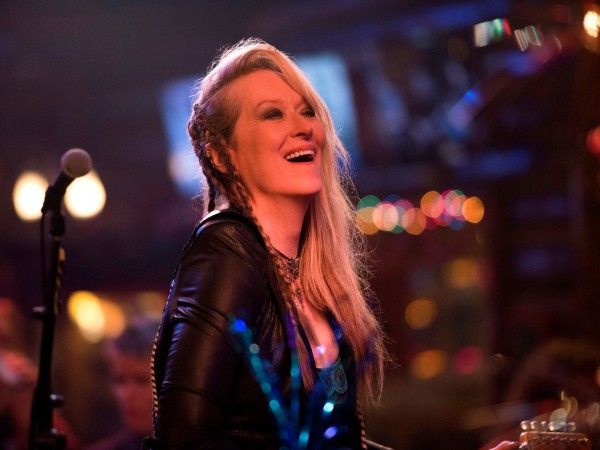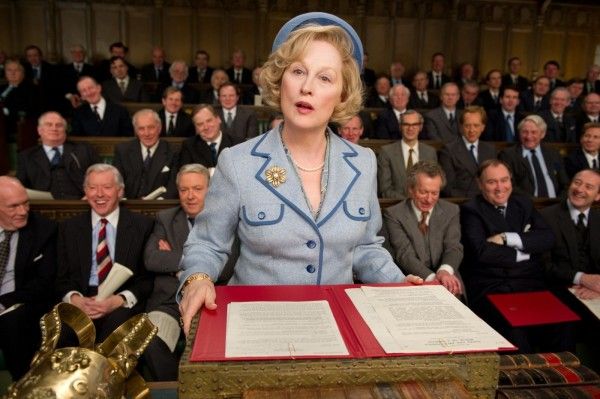Gender inequality is a bit of a hot-button issue at the moment. Some like to pretend that the gap between males and females is non-existent, or that it’s a problem that was rectified long ago. But you don’t have to look far to see sexism—either passive or active—in practice, which is what makes the upcoming drama Suffragette all the more relevant. Sarah Gavron’s film, written by Abi Morgan, tracks the early stages of the Women’s Suffrage Movement.
Meryl Streep has a brief role in the picture, but she’s been more visible in her role stumping heavily for the project because of her passion for it and its subject matter. She hasn’t shied away from sharing her thoughts on gender inequality as an ongoing problem, and in a recent press conference, she singled out a serious discrepancy in the world of film criticism:
"I went deep, deep, deep, deep into Rotten Tomatoes,” Streep said, emphasizing that many filmgoers make their movie-ticket purchasing choices based on the site's rankings. “There are 168 women. And I thought that's absolutely fantastic, and if there were 168 men it would be balanced. If there were 268 men it would be unfair but I would be used to it, if there were 360, if there were 4... actually there are 760 men who weigh in on the Tomatometer.”
That’s a pretty staggering difference in number, and while Rotten Tomatoes isn’t an all-encompassing encapsulation of the film criticism world as a whole, it does have a significant impact on what movies succeed or fail at the box office. In that way, this gender gap has genuine repercussions:
“I submit to you that men and women are not the same, they like different things. Sometimes they like the same thing but sometimes their tastes diverge. If the Tomatometer is slighted so completely to one set of tastes that drives box office in the United States, absolutely.”
She’s not wrong. The public’s reliance on Rotten Tomatoes to tell them what they should and shouldn’t see has become so striking that studios are actively putting stickers on Blu-rays and DVDs for films that are “Certified Fresh.” Putting aside the fact that Rotten Tomatoes is an awful barometer of quality (a mixed review and a rave review are both counted as “fresh”, so an RT score is really just a measure of how liked a movie is, not how good it is on a scale from 0% to 100%), it does mean something in the business world of moviemaking. A high score could spur audiences to turn out for a certain film, therefore boosting its box office, and the inverse is also true—“rotten” scores actively deter people from seeing a movie.
And that gender disparity in the profession makes a difference. Maybe men have a harder time relating to a character that’s significantly unlike them (e.g. a different gender), whereas women find it easier to relate to any type of character. This explains why men are so averse to seeing “chick flicks,” but women will see that and the latest blockbuster or action movie. It also could partially explain why Mad Max: Fury Road elicited a strong negative response from some men who were upset that Charlize Theron’s Furiosa was the main character (other than the fact that they’re idiots, of course).
Evidence of this can be seen at the box office: testosterone-heavy films like Furious 7 and The Avengers don’t break records by only courting male audience members; clearly women are seeing these movies, too. But female-driven films have a tougher time clearing that bar because some men just simply aren’t interested in/willing to go see a movie with mostly female characters. This also extends to the gender gap behind the camera (i.e. men hiring people who “remind them of themselves,” a.k.a. other men), but that’s another conversation.
For now, Streep appears to be on a candid streak, one where she doesn’t care how many feathers she ruffles along the way. It’s refreshing, and maybe these comments will even encourage some people to start thinking differently about the kinds of movies they see, and why.





